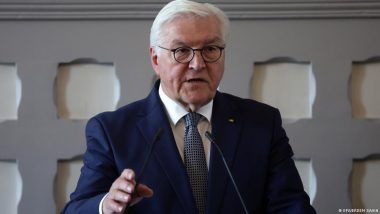A book by Frank-Walter Steinmeier titled 'We' searches for diversity in the face of division, though it's a difficult balancing act for the head of state.It's not often that a German federal president writes a book while still in office. But Frank-Walter Steinmeier, who's been the head of the German state for over seven years, has done just that.
Also Read | How To Maximise Body Growth and Performance After Exercising? 6 Methods To Help You Recover Effectively.
He says the decision was prompted by two major anniversaries of significant events in German history coming up this year: May 23, the 75th anniversary of the proclamation of Germany's constitution, the Basic Law; and November 9, which will mark 35 years since the Berlin Wall fell.
Also Read | Latest News | Vodafone Idea Shares Jump Nearly 12 Pc; Mcap Climbs Rs 7,517.98 Cr.
Steinmeier fears rise of the right
Looking ahead to those milestones, the president — who plays a relatively ceremonial role in matters of state — feels less celebratory than uneasy when considering the state of the country.
You could saySteinmeier is even alarmed in the face of developments such as rampant right-wing populism, the despondency of many people, skepticism about democracy, unresolved issues relating to migration, the welfare state, and the fight against climate change.
In Steinmeier's book, titled "Wir" ("We"), he describes a country plagued by great uncertainty.
Germany has become a nation that "must always expect the unexpected," he writes, noting "the emergence of a virus that paralyzes public life or a war that threatens to rob you of gas for heating in winter — loses their trust in the most fundamental things."
Isn't a president more of a bridge-builder?
Steinmeier has been traveling tirelessly around the country, including to small towns and communities to talk to people whose opinions differ more and more. Hence his attempt to look for what still unites us, for the "we."
But two questions are now being put to Steinmeier.
Is it the job of the head of state to take such an explicit stance on social upheavals and current political controversies — as he does in his book?
Or should he try to build bridges here too, beyond the current events of the day, between all levels of society?
Did Steinmeier help create a 'false sense of security'?
And if the President points out Germany's mistakes and past wrong decisions amid its comfortable, carefree sense of well-being — built on dependence on American security and cheap Russian gas — can he be the one to shake things up?
After all, as foreign minister, didn't Steinmeierplay a major role in ensuring that the country long lulled itself into a false sense of security?
From 2005 to 2009, and then again from 2013 to 2017, the former Social Democrat (SPD) politician was Germany's top diplomat.
He held that role when Russia occupied Crimea (in 2014) in violation of international law.
Fierce criticism of Moscow
Steinmeier would likely counter that last criticism by noting that many German politicians maintained a dialogue with Moscow until the outbreak of war in Ukraine.
But now he writes: "The war is radicalizing Moscow's unjust regime. It is entangling a partly fanatical, partly paralyzed Russian society in a culpability of historic proportions."
But weren't there signs of that very early on, especially for the then foreign minister?
For a multi-ethnic and pluralistic society
The majority of people in Germany are likely to agree with many of the statements in the book, such as when he writes that German society has never been homogeneous, with people from other countries and cultures having constantly joined it.
"Those who have immigrated to it, who are at home in it, who have become German by choosing a new nationality," are as valid as any citizen, he says.
On the right-wing fringe, however, it is precisely these statements that are categorically rejected.
Addressing the right-wing populists, Steinmeier writes: "Some of them even want to forcibly create such homogeneity and expatriate Germans who don't fit the bill. The majority of citizens oppose such unconstitutional fantasies."
Criticism of social media and cancel culture
But it is also the case that it's more than just a handful of folk who no longer identify with the president's concept of "we," and who conduct their dialogues within the bubbles of their own digital platforms.
Steinmeier recognizes one of the central problems here, writing: "The boundaries of what can be said have been pushed too far towards the unspeakable. A brutalization has taken root in political language that triumphantly presents itself as fearlessness. Paradoxically, at the same time, many feel confirmed in the idea that you can no longer speak your mind and are attacked for every frank word."
Steinmeier's goal is to mobilize the large, silent majority of society against this group, and encourage them to retain their trust in the governing politicians.
Steinmeier virtually implores them: "It is important to realize that it is not only obtuse or malicious politicians who are to blame for the fact that Germany is in a changed situation. No German politician can order the world to turn back in our favor."
The role of the German president
The power of the German president might be limited, but Steinmeier has exhausted the function of his office to the utmost with his book.
His concern for the future of the country is one thing. What is missing is an honest assessment of Germany, which is still one of the richest countries in the world with a functioning welfare state and constitutional state.
And upheavals such as those described are not unique to this country.
Occasionally, the reader gets the impression that the former power politician feels a certain frustration at not being able to play more of a role in helping to shape these turbulent times.
But this restrained role of a purely representative head of state is his job, no matter how crazy the world around him seems to become.
This article was translated from German.
(The above story first appeared on LatestLY on Apr 23, 2024 05:20 PM IST. For more news and updates on politics, world, sports, entertainment and lifestyle, log on to our website latestly.com).




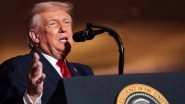
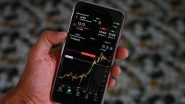
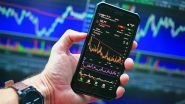



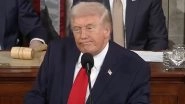


 Quickly
Quickly